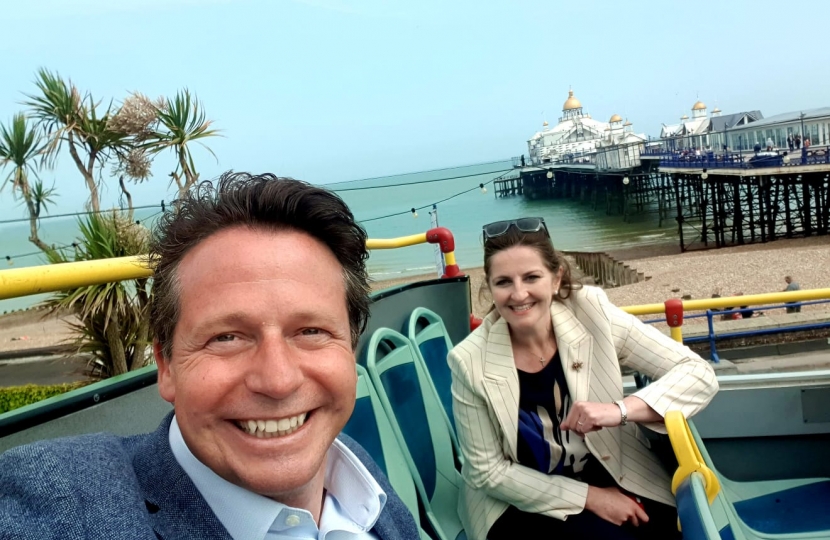
Permanent VAT reduction essential for UK tourism
The UK’s tourism industry has been devastated by Coronavirus over the last year and a half and will be one of the last sectors to recover due to restrictions on international travel. Here, Conservative MP, Caroline Ansell, sets out what more Government could and should be doing to help the sector recover and thrive.
The importance of tourism to UK plc.
The sector contributes £147bn per annum to the UK economy and employs 3.2m people throughout the country (just under 10% of the UK’s entire workforce). It goes without saying that we must do everything we can to rebuild the sector as quickly as possible.
My own constituency, the destination seaside town of Eastbourne, relies more heavily on tourism than the national average for jobs and livelihoods. Nearly one in three (28%) of jobs here are dependent on the trade. Key events from the Eastbourne International tennis competition to the Eastbourne International Air Show are highlights of the summer season and have both been casualties of the pandemic.
Government plans
An analysis of the area’s most in need of levelling up follows the coastline around the UK, wherever there is a dependence on tourism. It’s therefore very welcome that the Government recently published a Tourism Recovery Plan, targeting a return of domestic tourism revenue back to 2019 levels by 2022 and inbound tourism back to 2019 levels by 2023. This is vital for coastal communities such as my own. To achieve these targets will require the Government to implement initiatives that generate an additional £6bn in domestic tourism revenue and £14bn in inbound tourism revenue.
New initiatives contained in the Recovery Plan include the provision of £10m in vouchers to visit attractions for those who play the National Lottery and for the development of a new domestic rail pass. Both are welcome measures but much more is needed.
VAT changes essential
To help the British recovery, the Government has lowered VAT for the tourism and hospitality sector from 20% to 5% until September 2021 and will maintain a reduced rate of 12.5% for a further six months to 30 April 2022.
I strongly made the case for the 5% rate to be extended and am now seeking to make that extension permanent.
Economic impact
Tourism is very price sensitive. Evidence from VisitBritain shows that for every 1% reduction in the cost of a holiday, revenue increases by 1.3% - so a permanent VAT reduction is likely to have a very positive financial effect. Indeed, a range of organisations from the Country & Land Business Association to Cut Tourism VAT have suggested a permanent VAT cut for the sector would raise several billion pounds for the economy.
The Treasury’s own modelling and research by Deloitte and others shows that, over a 10 year period, reducing VAT to 5% would improve the UK’s exports by £23bn; create 121,000 jobs and deliver £4.6bn to the Exchequer.
These economic benefits are something that all of the UK’s main European competitors have already recognised, with countries such as France, Spain, Italy and Germany operating a reduced rate of VAT of around 10% to boost their respective tourism industries.
The UK may have a rich and vibrant tourism industry but, to be globally competitive, we must match what other countries are doing on VAT.
Level playing field
Of course, it’s not just about a level playing field with our international competitors, there is much to be said for investing more in areas of need in the UK. As I highlighted in Parliament last year, the north does need levelling up but so too does the north of Eastbourne!
The same is true for many other costal towns in the southeast – as well as on the east and west coast.
The temporary reduction is already helping to deliver jobs, growth and investment in communities across the UK, including my own here in Eastbourne, but why should such positives be temporary rather than permanent?


